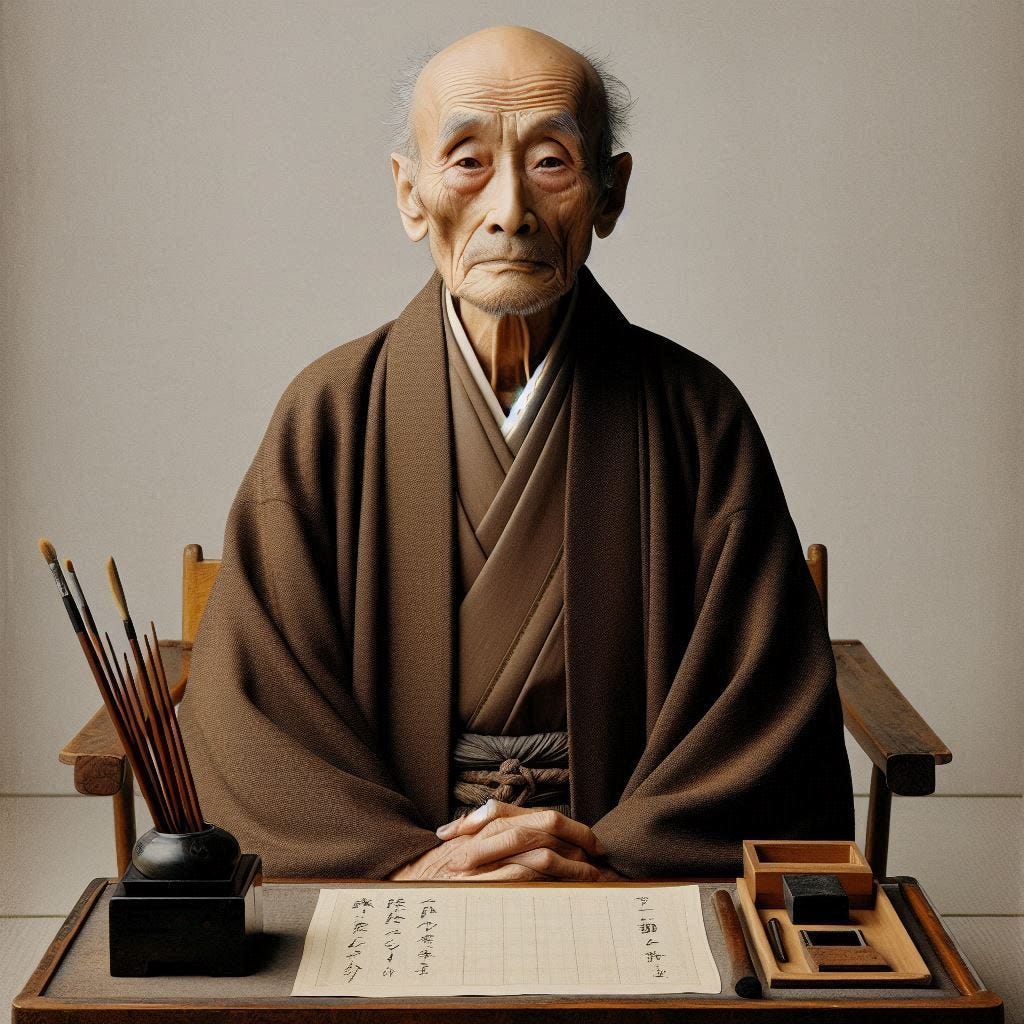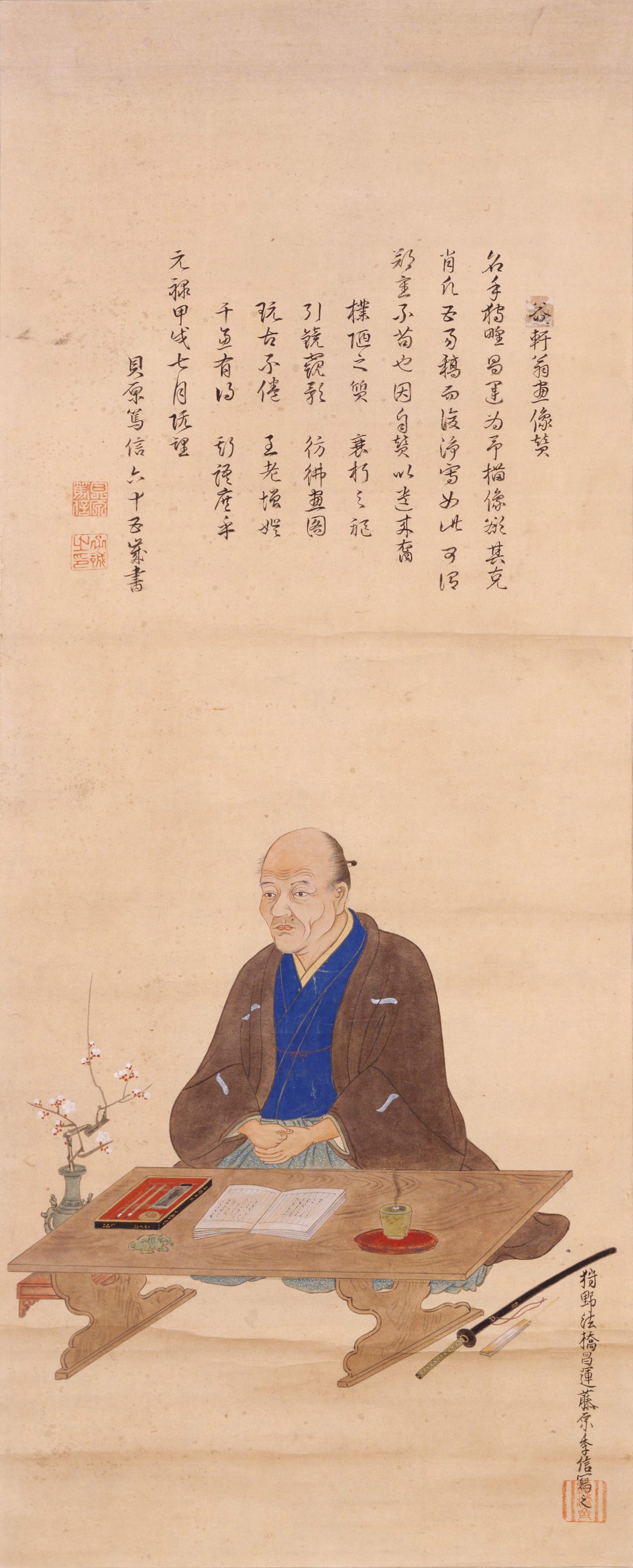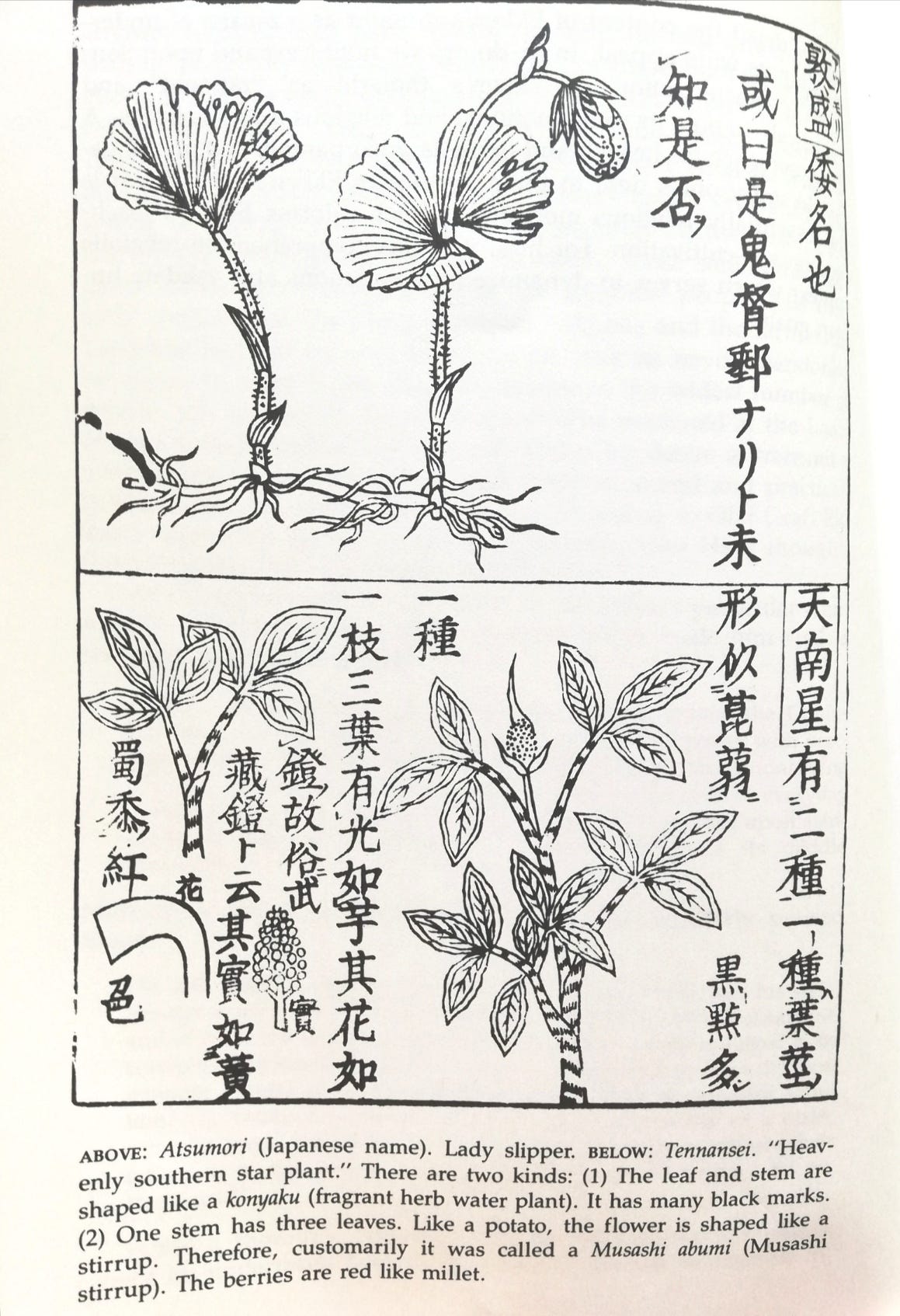In this post:
· Historical background of Kaibara Ekken.
· The most profound Japanese polymath.
· The main books.
· Ethics and philosophy.
· The main text for Budoka – Yamato Zokkun and what it gives us.
Intro.
I believe that Kaibara Ekken (1639 – 1714) is a key that helps martial artists and general students of Japanese culture to unlock so much of the underpinning thought and philosophy that filtered through into Japanese life and affected all social structures.
It is generally thought that for martial artists the usual go-to source materials might have been writings on Bushido, particularly those of Nitobe. But, I have my doubts about Bushido as an idea, and certainly about Nitobe’s motives for writing his well-known book on the subject.
Why Ekken is a better choice.
For me, Kaibara Ekken does some things that are quite unique. First of all; that he published his ideas in straight-talking common language (but of its time), with a deliberate policy of making it accessible to the ordinary people. You didn’t need to be versed in the Classics, or use flowery words to understand what he was getting at.
Ekken was doing back in the 17th and 18th century for philosophical thinking what 21st century popular philosophers like Donald J. Robertson are now doing with Stoicism. In Robertson’s writings and online publishing, he is showing us how we can live out lives in very practical ways like the Roman philosopher/emperor Marcus Aurelius, and people are lapping this up, particularly young men.
But more about the man.
As a basic biography; although Kaibara Ekken was from a samurai family, his father was actually a samurai physician, acting probably with the Kuroda clan. It was from his father that Kaibara Ekken gained his love of learning and his curiosity.
Another significant fact about him was that growing up he was not living in the confines of castle society, but instead in the towns. This is where he may have gained his common-touch, in terms of later directing his writings towards the lives of ordinary people, not the overly-refined samurai class.
He also had a passion for different forms of written language, which motivated him towards plain speaking and direct communication (in written form). So, it appears that much of the groundwork was established in his younger years.
The influence of his older brother Sonzai cannot be overstated. It was Sonzai who took him under his scholarly wing and persuaded him to reject the Buddhism his mother had taught him and explore Neo-Confucianism, particularly the writings of the Chinese philosopher Chu Hsi (1130 – 1200).
Kaibara Ekken’s journey of discovery.
When I became aware of Ekken, I couldn’t help but make a comparison between him and Leonardo da Vinci, primarily through their polymath approach, although their outcomes were very different. Here is a list of in-depth, passioned, almost obsessive study areas that Ekken examined, taught, lectured and published on.
Ethics, institutions, linguistics, medicine, botany, zoology, agriculture, taxonomy, food sanitation, law, mathematics, music, military tactics, astronomy, history, archaeology, etc.
He was able to do this because of the fortunate circumstances of almost continual sponsorship of the Kuroda clan.
He had one small hiccup; where he spent seven years under Ronin status, when the short-sighted inattention of the then clan lord Kuroda Tadayuki pushed him outside of the clan protection. But he used the time well and soon bounced back.
Ekken took every opportunity he could to access all the most learned scholars in Edo, Kyoto and Nagasaki, the latter of which gave him the opportunities to acquire western books, which fired his imagination in terms of what could be done in the name of the natural sciences. These books were officially restricted, but there were ways of getting hold of them.
Contemporary image of Kaibara Ekken 1700. Public domain.
Yamato Honzo – Medicinal Herbs of Japan 1709.
Ekken’s book on plants was truly groundbreaking. Tied in closely with his medical studies and related to (and improved upon) earlier Chinese texts; this was closer to a western treatise than anything the Chinese produced.
Botanical studies.
Ekken’s rules of study were expanded upon through the philosophy of the earlier Neo-Confucian Chinese scholar Chu His. Ekken’s general rules were:
· Valuing broad learning and wide experience.
· Not being overly credulous, but remaining sceptical in regard to doubtful cases.
· Being fair and objective in one’s judgements.
· Investigating thoroughly and reflecting carefully before making a judgement.






